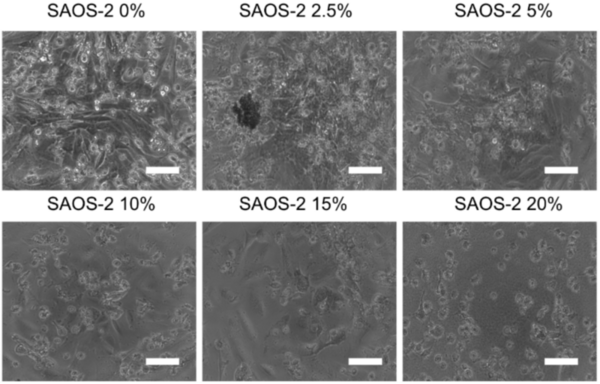Development of anti-cancer bionanoparticles isolated from corn for bone cancer treatment
(1) Seoul International School, Seongnam-si, South Korea, (2) Department of Biological Science, University of Suwon, Hwaseong, Gyeonggi-do, Republic of Korea
https://doi.org/10.59720/22-254
Nanoparticles (NPs) are particles ranging from 1 to 100 nm in size. NPs can be derived from various sources such as copper, gold, and even plants such as kiwis and corn. Previous studies have shown that nanoparticles derived from corn (cNPs) displayed anticancer properties, but their effects were not tested on bone cancer samples. Current bone cancer treatments are limited as anticancer drugs often either cannot reach the tumor or have little effect on it. Therefore, in this study, we hypothesize that cNPs may have anti-proliferative effects on bone cancer and metastasized bone cancer. First, we found that SAOS-2 (human osteosarcoma) cell viability decreased to 0% when treated with a 20% cNP concentration, and NCI-H526 (human lung carcinoma metastasized to bone marrow) cell viability decreased to 0% when treated with only a 15% cNP concentration. These results indicate that NCI-H526 is more sensitive to cNPs than SAOS-2. Secondly, we found that cNP treatment reduced the expression of BCL2, a gene that prevents apoptosis, suggesting that the cNP treatment induced BCL2-dependent apoptosis. Overall, these results indicate that cNPs have anti-proliferative effects on bone cancer cells and cancer cells that metastasize to the bone. Therefore, our study suggests that cNPs may be applied to the development of bone cancer treatment.
This article has been tagged with: